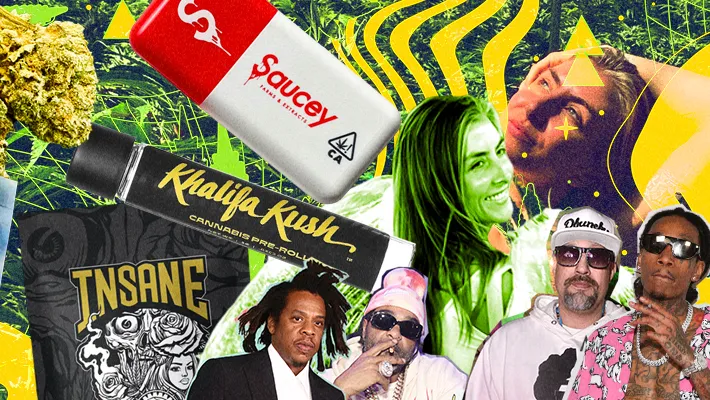Running a cannabis brand shares similarities with being a rapper. I have firsthand knowledge of this because I spent 13 years in the music industry as an engineer, handling mixing, mastering, and recording. I primarily collaborated with rappers, R&B singers, and performers in that genre. Apart from studio work, I also managed two different artists and was involved in various events. These experiences provided unique insights into the entire supply chain of the music industry, emphasizing the importance of a good product and producer.
In both music and cannabis, having a high-quality product is paramount. In the music industry, a hit song requires a great beat and lyrics. Similarly, in cannabis, having quality weed, whether it’s flower or extracts, is essential. Without a good product, no amount of marketing or hype can sustain success. Producers in the rap industry are akin to cultivators in the cannabis industry, both creating the foundation for the final product.

Moving on to distribution, record labels handle music distribution, whereas cannabis brands rely on distribution companies. While the music industry has well-established digital distribution channels, the cannabis industry’s distribution landscape is more varied. Although obtaining a distribution license is relatively easier than a cultivation license, success depends on the quality of the distribution company and its connections with retailers.
Furthermore, just as musicians engage with their audience through concerts and events, cannabis brands interact with consumers through in-store demos, patient appreciation days, and marketing efforts. Establishing a strong local presence is crucial before expanding to a wider audience, mirroring the approach musicians take when building their fanbase.
Regarding branding, consistency is key. A cannabis brand’s quality, packaging, and overall experience should align with its product. Similarly, a musician’s image, music, and marketing efforts must resonate with their audience. Both industries require substantial effort in building a credible and recognizable brand.
In the music industry, touring is a significant revenue source. In the cannabis world, large events and venues serve as platforms for brands to showcase their products. Just as musicians tour to reach a broader audience, cannabis brands participate in events to expand their market reach, albeit in a different format.
For artists contemplating venturing into the cannabis industry, partnerships with established brands can be beneficial. Collaborations can range from promoting products to co-creating special editions. However, success in the cannabis industry, like the music industry, requires dedication, commitment, and passion. There are no guarantees; it’s a journey that demands hard work, persistence, and a genuine connection with the product.
To learn more about building and launching a licensed cannabis brand without owning the license, visit my website, HighChris.com. Additionally, explore other videos on my channel, offering valuable insights into entering the cannabis industry without a license.






